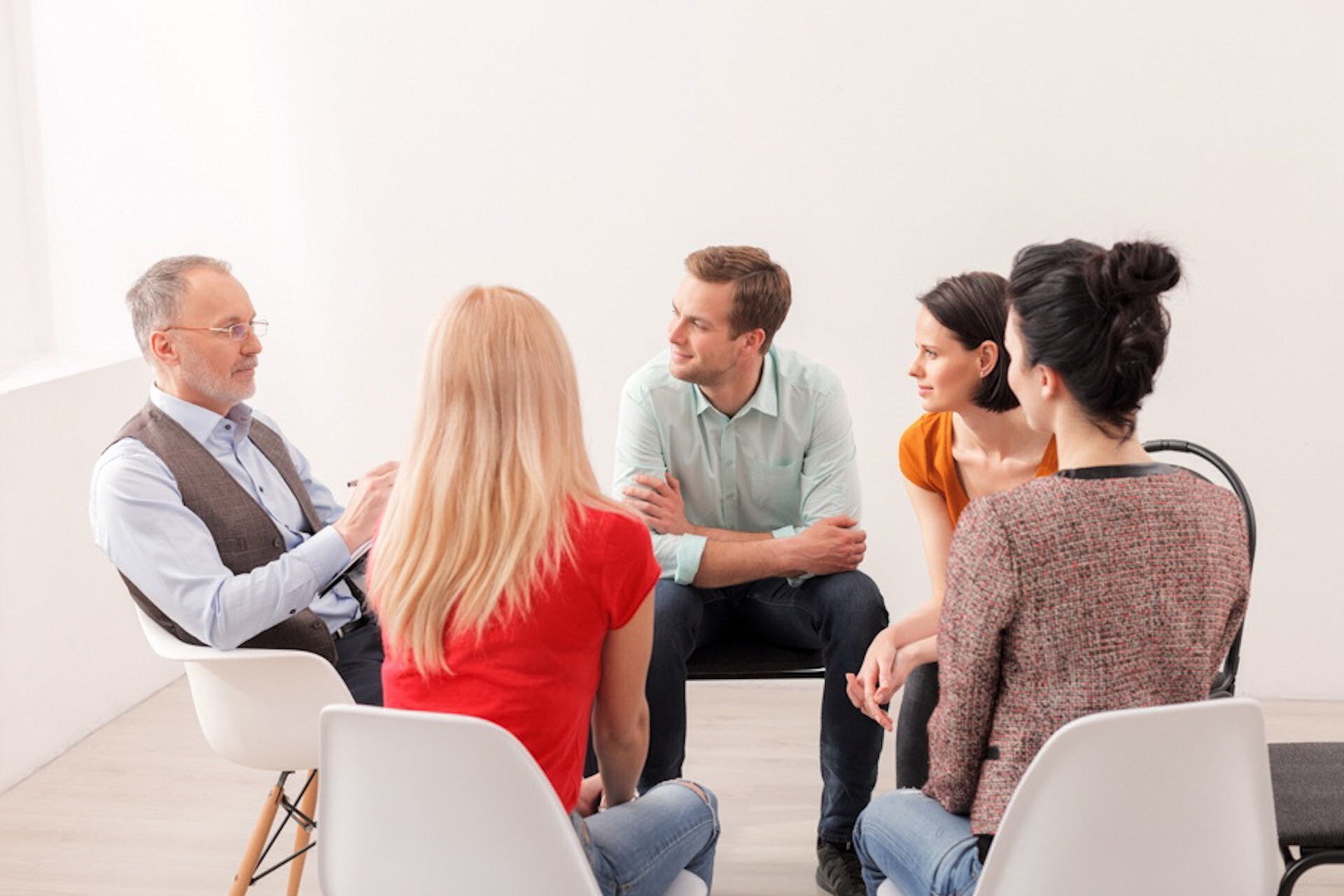Group therapy is a highly effective psychotherapy approach that has been used in addressing numerous issues by most psychologists and therapists. This particular approach has proven to be quite effective because it removes the concept of isolation from the person and builds rapport with other people who have similar issues. Psychoeducational group therapy is one form of group therapy, where the focus is on providing education through information sharing and developing coping mechanisms against specific issues, such as substance abuse.
What are Psychoeducational Groups?
Jump to Section
The participants in most forms of group therapy are people who share the same issues, such as substance abuse, anxiety, trauma, and other mental health issues that therapists consider as being best addressed in a group. Participants in these group therapy sessions find comfort in what is shared. Many find it much easier to talk about their issues with someone else who also has it. These people do know what it’s like, as compared to having to talk to a therapist who shines the spotlight on a single patient.
Psychoeducational groups utilize the same group therapy process, where participants get to share their concerns and struggles during recovery with the rest of the group. A key difference, however, lies in the fact that psychoeducational groups make use of materials to help convey significant information to the participants. This helps to make the group not only a safe place for all participants to process their feelings and struggles, but also adds a strong educational component. The materials used during psychoeducational group sessions could include documents with statistical information, relevant videos, handouts, books, curriculum, and resource speakers. The materials are intended to help increase the participant’s self-awareness and ultimately, the outcome of their choices relevant to substance abuse.
Discussions during psychoeducational group sessions are quite similar to traditional group therapy for drug addiction in that each participant is allowed to share relevant information that could prove to be useful for others in dealing with their issues or to help them maintain sobriety. The main difference is that while traditional groups allow a certain amount of freedom for participants to discuss what they think is useful, psychoeducational group sessions operate on the premise that all shared information should be educational and helpful to all participants and not just updates of how a particular member is doing relevant to their condition.
What are the Objectives of Psychoeducation?
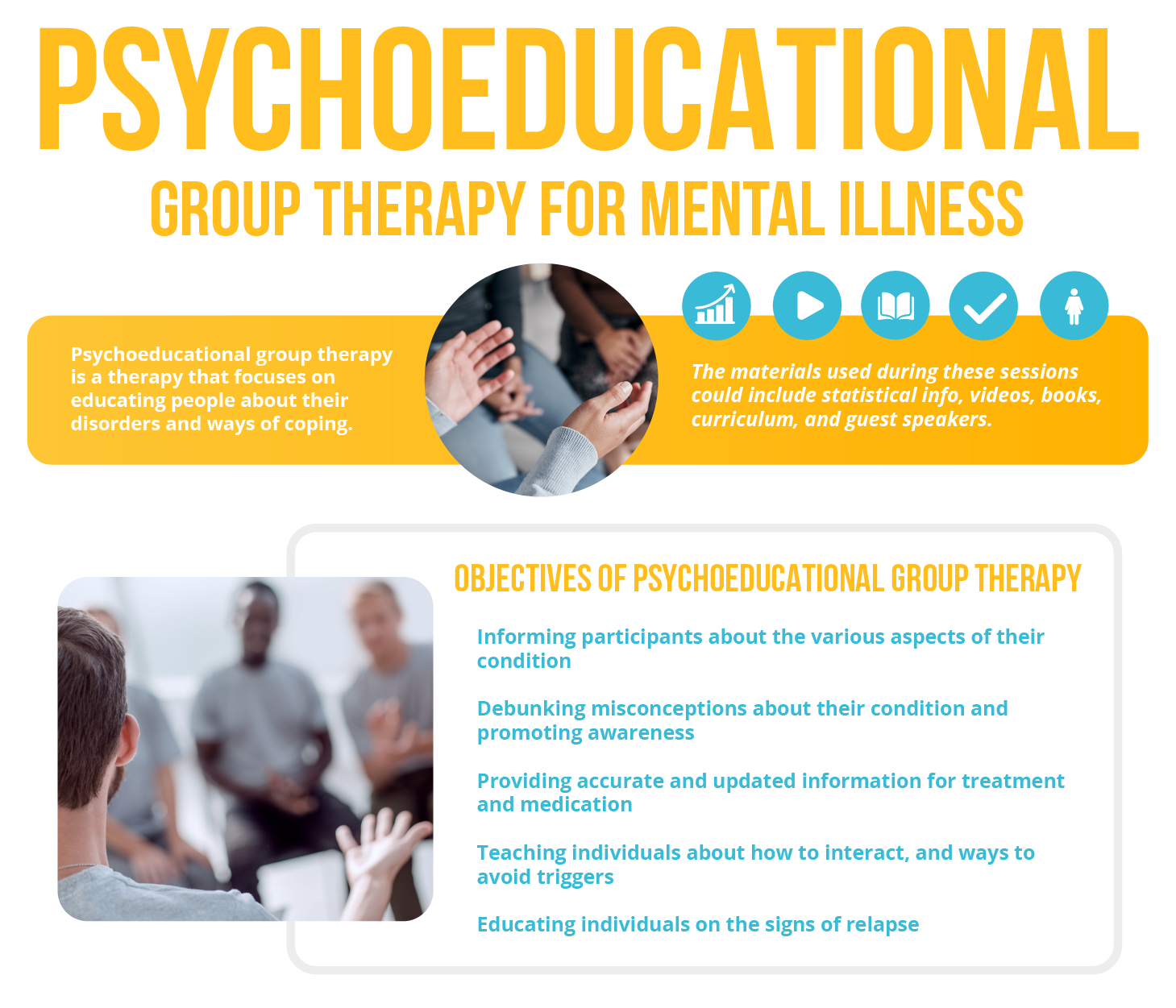
A psychoeducational group session typically follows an agenda as set by the therapist moderating the group discussion. Participants of the session are expected to bring something to the table, so to speak, by way of active participation and sharing of valid and relevant information they might have that could help the other participants. Some of the objectives of the sessions include:
- Informing participants and family members of the participants about the various aspects of the relevant condition, including signs and symptoms, potential course of the condition, different outcomes, and prognosis
- Debunking misconceptions about the condition and promoting awareness with the participants and their family members
- Providing accurate and updated information regarding the different treatment and medication options for the condition, including the risks involved
- Teaching family members of participants how to interact with group participants and what to avoid during interactions (potential triggers)
- Educate participants and family members of the participants to monitor and draw attention to early signs of relapse
- Improve the chances of integration for individuals with mental health issues into their home communities, specifically in terms of social and occupational functioning
What Conditions are Typically Addressed with Psychoeducation?
Even though many, if not most, of the conditions already being addressed by therapists today, are issues that have been with people for a very long time, there is still a lack of awareness and accurate information about the nuances of these conditions. Psychoeducation seeks to correct that by sharing relevant information about specific conditions with participants of psychoeducational group therapy sessions.
Psychoeducational group therapy sessions are particularly useful for these conditions:
- Depression
- Psychological distress
- Bipolar disorder
- Schizophrenia
- Schizoaffective disorder
- Attention-deficit hyperactivity disorder
- Substance use disorder
- Generalized anxiety
What are the Benefits of Psychoeducational Group Therapy?
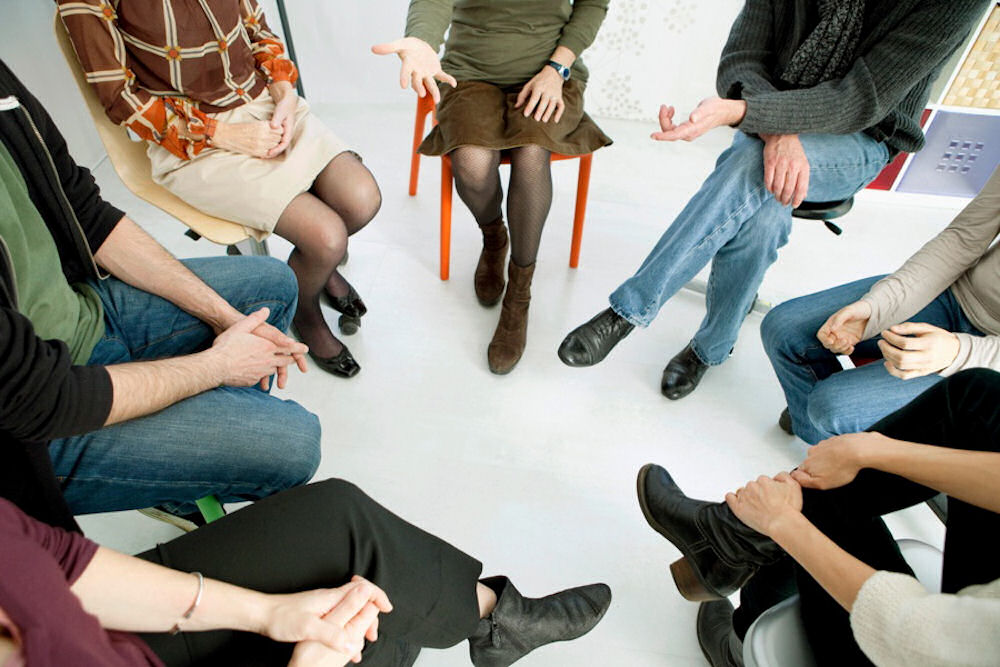
Psychoeducational group therapy sessions primarily work to give mostly the same benefits derived from traditional support group therapy sessions, which provide a healthy and conducive atmosphere for peer sharing of issues and stories relevant to specific conditions.
Provide a Safe Haven for Discussions
Discussing mental health issues or concerns relevant to substance abuse is not the typical fare for commonplace talk, as not everyone is comfortable with these topics. Even worse is the fact that there are still many who are ignorant of the particulars of the condition. As a result, people look at those often afflicted with these conditions in a certain demeaning manner, promoting a stigma where there should be none. Just like in most support groups, psychoeducational group therapy sessions are venues of safety, privacy, and open sharing all intended to benefit all participants.
Reduces Relapse Rate
Anyone who has suffered from one form of heavy dependency or another will know the nuances of the addiction cycle. This is where a person in recovery could easily slip back into using substances once more and putting to waste all of the previous work done during recovery. Psychoeducational group therapy sessions are also the best places to raise the awareness of all participants about the likelihood of a relapse, including what to look out for to prevent the incidence of a relapse. Being able to relate with others with similar situations and conditions is a great way to spot something wrong that the person might not see themselves.
Improves Rehabilitation Rate
Being able to track success and progression rates is a great way to create motivation, and this also applies to psychoeducational group therapy. Noting milestones and learning from the success of others will go a long way to helping members of the group to push themselves toward a similar progression. This is important because many people in rehabilitation simply lose the will to continue and get right back into a relapse.
Significantly Decreases The Burden and Distress of Families
Psychoeducational group therapy also makes provisions for the inclusion of family members in sessions. This is the perfect opportunity for members of the family to know what recovery is all about. This is also an excellent venue for the family to know just how far the person has gone with their therapy.
It validates the moral support that the family has been giving the person throughout the entire therapy period. The inclusion of family members also educates them on how best to live with someone who is in recovery. So, that a lasting sobriety is guaranteed with the help of family members.
Reduces Medication Nonadherence
There are some cases where people going through recovery might need specific medication. It is not uncommon for many to forget to take their medication, for one reason or another. Some might have suffered lasting effects of substance abuse that affect memory. Others might find taking any kind of medication distasteful as it reminds them of their previous dependency. Whichever the case might be, being with peers who discuss matters relevant to recovery is a fantastic and indirect way to remind therapy participants to take their medications to complete their recovery
Improves Quality of Life
The ultimate goal of being in recovery is so that a person may rise above stumbling blocks like substance abuse and get back to leading a healthy and productive life. The stories of success and progression shared between therapy participants in a psychoeducational group therapy session are an excellent way to promote this. Therapy participants could serve as all the motivation that other participants needed to turn their life around and get above their mental health issues or addiction problems.
Improves Problem-solving Abilities
Sometimes a person hits a snag on their way to recovery, and there are instances where this snag could be so damaging to all the work that had already been done towards recovery. Unless the person finds a way out of whatever hinders their efforts to complete recovery, they could remain stagnant where the snag has kept them.
Being in a psychoeducational group therapy session, however, allows participants to learn from each other, and someone might have a very novel way to deal with the snag that has become a hindrance to other participants. This is why the sharing sessions are highly beneficial to participants, as there are solutions that are not found in most problem-solving guides.
Improves Self-management Behaviors and Self-care
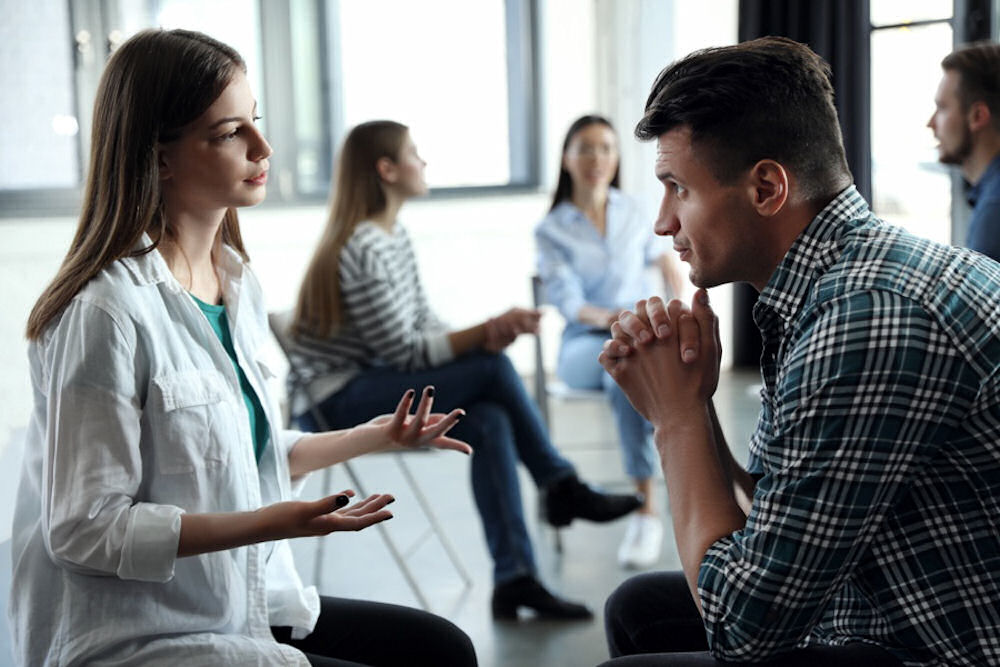
The reality of recovery is that is it a form of self-care since it is a willful exercise to bring the self back to a healthy and dependence-free lifestyle. It should also be noted, however, that most of the effort and willingness needed for recovery must come from the person and not from anyone else involved in the treatment.
While this entails drawing strength and determination from the self, being exposed to others who also strive to better themselves is a big help by way of inspiration. It might not be as easy as one might expect. However, the dominant thought in such a situation is that if someone else was able to achieve it, then it stands to reason that everyone in the group should be able to do so as well.
Gain Deeper Insight into the Condition
The benefit of learning from others is that before sharing instances like that practiced in psychoeducational group therapy sessions, a person would mostly operate and go about life with only their knowledge of the condition. By hearing the accounts and experiences of others with a similar condition, a person gains better insight and more useful information that they might not have known before about their condition.
This deeper insight could help to give the person a better perspective about their condition, such as what personal nuances they have that might be unknowingly hindering their progress. This is important because getting a better insight also allows for better understanding and introspection. The more that the condition is understood, the better the chances are of recovering from it.
What is Expected of Psychoeducational Group Therapy Sessions?
As with most forms of therapy, each session should have some usable takeaways for participants, and psychoeducational group therapy sessions are no exception. Participants can expect that sessions should result in:
Transfer of Useful and Usable Information
Unlike traditional therapy sessions where the participants can share anything and everything, even things that might be remotely relevant to their condition, psychoeducational group therapy sessions are expected to equip the participants with information that will benefit them in their effort toward recovery.
This transfer of useful and actionable information also necessarily extends to family members of the patient that are in attendance. This is important because friends and family members who don’t have the necessary knowledge about substance abuse recovery could very well be the ones that make the process more difficult without them even knowing it.
Formulation of Appropriate Medication and Treatment Plan Support
Each addiction treatment therapy should be an exercise with the theme “how do we move forward from here?” Part of the takeaways should be an idea of what an appropriate medication and treatment plan should look like. This part of therapy should be done with the help of a therapist based on developments and learnings achieved during the sessions.
It is especially important that any addiction treatment plan is tailored specifically to the person receiving care. A plan that is not well-suited may be ineffective—or worse, could lead the individual to abandon therapy and risk relapse. Programs at an inpatient rehab Washington State provide a structured, supportive environment where personalized treatment plans can be carefully designed, monitored, and adjusted to maximize the chances of lasting recovery.
Let Free By The Sea Show You the Benefit of Psychoeducational Group Therapy
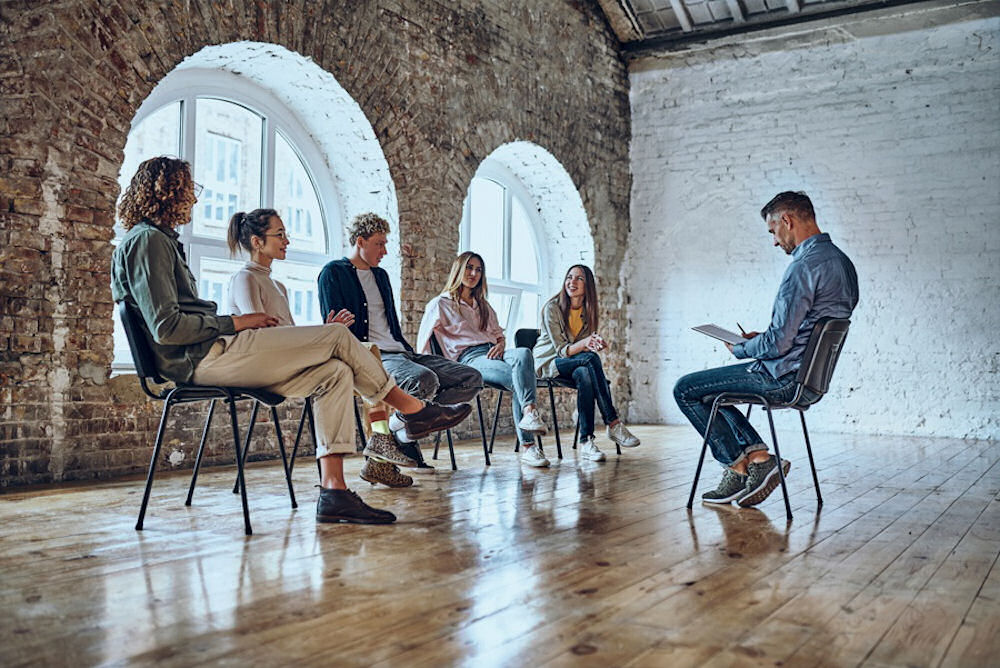
While many might suffer from the same type of substance abuse disorder, most people will behave and receive therapy differently. This is particularly true if the particular type of therapy is not suited or appropriate for them. Our addiction treatment center in Washington makes a point to fully understand the nuances of a person relevant to their condition so that we might find a treatment that would work best for them. Contact us and let us discover what works well for you.

Dr. Richard Crabbe joined our team in 2019 as our psychiatrist and medical director. He attended the University of Ghana Medical School where he became a Medical Doctor in 1977. From 1978 through 1984, he was a medical officer in the Ghana Navy and provided a variety of services from general medicine to surgeries. He received his Certificate in General Psychology from the American Board of Psychology and Neurology in 2002.

 March 2nd, 2023
March 2nd, 2023